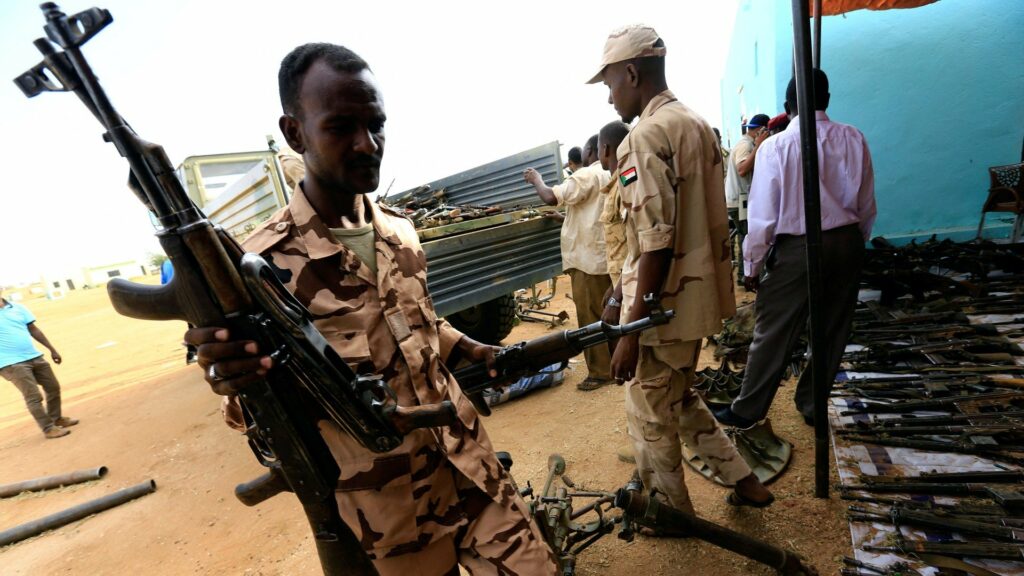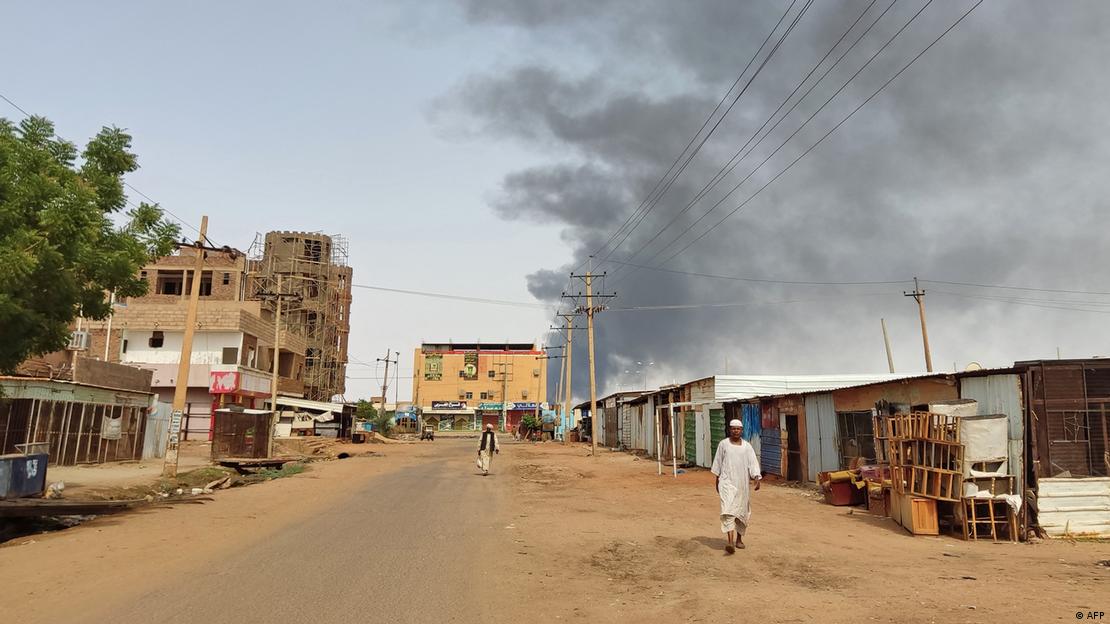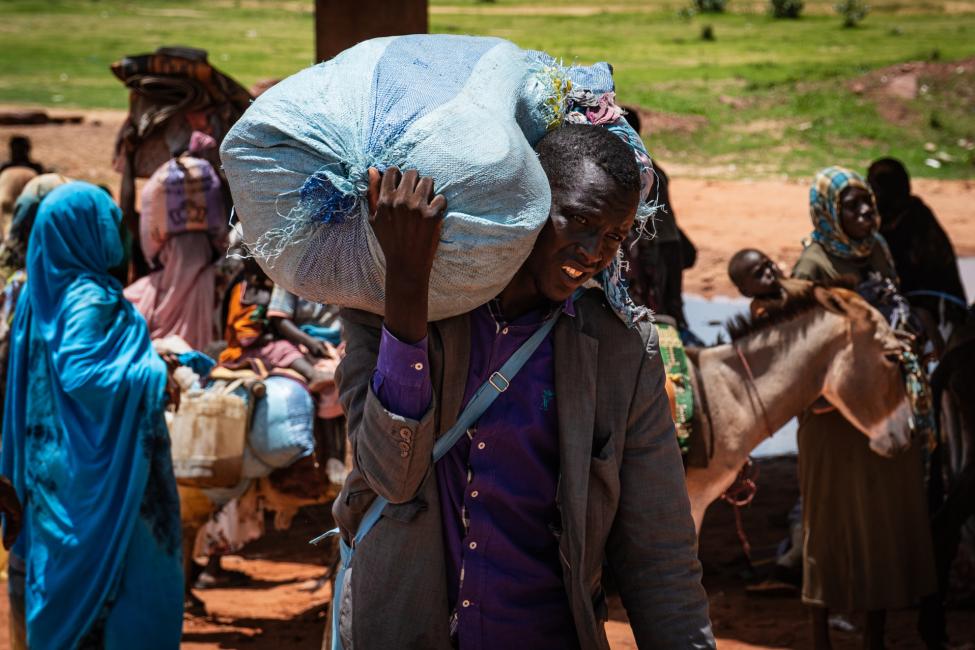A raging conflict in Sudan has driven more than 3 million people from their homes, including over 700,000 who fled to neighboring countries, the U.N. said Wednesday. The United Kingdom announced sanctions on the warring factions, amid growing concerns the country is sliding into a “full-scale civil war.”
Sudan has plunged into chaos since mid-April when monthslong tensions between the military and its rival, the paramilitary Rapid Support Forces, exploded into open fighting in the capital, Khartoum, and elsewhere across the northeastern African nation.
The conflict derailed Sudanese hopes of restoring the country’s fragile transition to democracy, which had begun after a popular uprising forced the military’s removal of longtime dictator Omar al-Bashir in April 2019. A coup, led by the military and RSF, disrupted the democratic transition in October 2021.
More than 2.4 million people have fled their homes to safer areas inside the country, according to the International Organization for Migration. Around 738,000 others crossed into neighboring countries, the agency said.
Egypt is hosting the largest number of those who fled — more than 255,500 people — followed by Chad with more than 238,000 and South Sudan with around 160,800, the IOM said. More than 62,000 people fled to Ethiopia, more than 16,700 to the Central African Republic and around 3,000 to Libya, it added.
More than 72 percent of those displaced were from Khartoum and around 9 percent from West Darfur province, both places where the clashes have been largely centered, the IOM said.
The IOM said that 65 percent of those who fled into neighboring countries were Sudanese nationals and the rest were foreigners and refugees who were forced to return to their home countries.
The fighting continued Wednesday in parts of Khartoum. Plumes of smoke could be seen rising over the city center, where residents said the military attacked a building allegedly used by RSF members.
The conflict has turned Khartoum and other urban areas into battlefields. Members of the paramilitary force have occupied people’s houses and other civilian properties since the conflict broke out, according to residents and activists. There have also been reports of widespread destruction and looting across Khartoum and the nearby city of Omdurman.
The sprawling region of Darfur saw some of the worst bouts of violence in the conflict with the fighting turning into ethnic clashes, according to the U.N.
The RSF and allied Arab militias rampaged through the region, forcing hundreds of thousands to flee their homes, according to rights groups. Entire towns and villages were burned to the ground and looted, especially in West Darfur province.
The clashes have killed more than 3,000 people and wounded more than 6,000 others, Health Minister Haitham Mohammed Ibrahim said in televised comments last month. The casualty tally is likely much higher, according to doctors and activists.
International and regional efforts have so far failed to establish a cease-fire that could allow humanitarian agencies to provide support to civilians still trapped in the conflict. U.N. Secretary-General António Guterres warned over the weekend that the country was on the brink of a “ full-scale civil war.”

Earlier this week, a regional meeting floated the idea of deploying troops to Sudan to protect civilians. The Quartet Group, which met Monday in the Ethiopian capital, Addis Ababa, called for a summit of the Eastern Africa Standby Force, a 10-member regional bloc, to consider the proposal.
The Quartet Group is a subcommittee of the Intergovernmental Authority on Development, or IGAD, an eight-member East African bloc. It is headed by Kenyan President William Ruto, who called for an unconditional cease-fire in Sudan and the establishment of a humanitarian zone to help deliver humanitarian aid.
Sudan’s military delegate, who was in Addis Ababa, didn’t attend Monday’s meeting and accused Ruto, the chair of the Quartet, of siding with the paramilitary force because of his alleged business ties with the family of the RSF commander. Sudan’s government, which is controlled by the military, reiterated its calls to replace the Kenyan leader as the chair of the Quartet.
There was no immediate comment from Kenya. Its government, however, denied the accusations last month and said Ruto, who was appointed by the IGAD over the Sudanese military’s objection, was neutral.
Sudan’s government also denounced the proposal to deploy foreign troops, and said any foreign forces on Sudanese territory would be considered “aggressors.”

It also criticized comments by Ethiopia’s prime minister who called for imposing a no-fly zone over Sudan.
The leaders of South Sudan, Chad, Eritrea, Libya and Ethiopia arrived Wednesday afternoon in Cairo to attend a meeting for Sudan’s neighboring countries, Egypt’s state-run Al-Ahram reported. The meeting, which Egypt is hosting Thursday, aims at establishing “effective mechanisms” to help find a peaceful settlement to the conflict, according to the Egyptian presidency.
The regional diplomacy comes as talks between warring factions in the Saudi Arabian coastal city of Jeddah repeatedly failed to stop the fighting. The Jeddah talks were brokered by Saudi Arabia and the United States.
The U.K. government meanwhile imposed sanctions on six firms with links with the military and the RSF, as part of international pressure on the warring factions to stop fighting. The sanctions announced Wednesday are nearly identical to that imposed by the U.S. on both sides last month.
The British Foreign Office said that the sanctioned firms include Al Junaid, a lucrative gold mining company, owned by the family of the paramilitary force commander Gen. Mohammed Hamdan Dagalo. Also sanctioned are GSK Advance Ltd and Tradive General Trading L.L.C., which is based in the United Arab Emirates. Both firms are allegedly front companies controlled by the Dagalo family.
Source: PBS News






